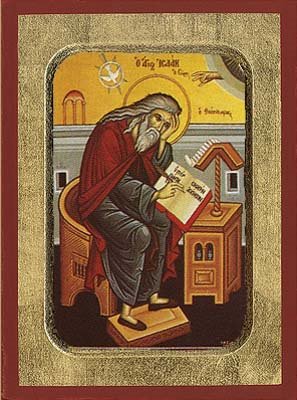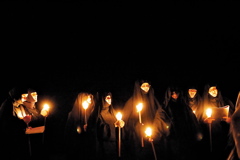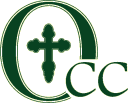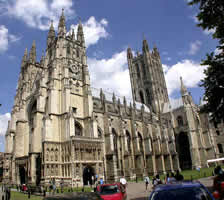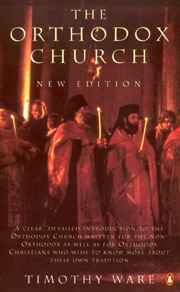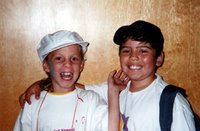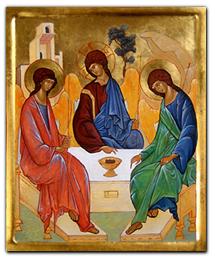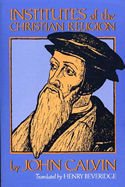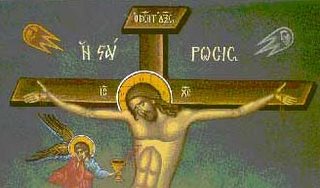 Man was created by God to be a worshiping being, a priest, who offers the creation to the Holy Trinity as a means of love and communion. I discovered this view from Fr. Alexander Schmemann who says in his book For the Life of the World, “man must eat in order to live; he must take the world into his body and transform it into himself, into flesh and blood. He is indeed that which he eats, and the whole world is presented as one all-embracing banquet table for man. And this image of the banquet remains, throughout the whole Bible, the central image of life”. The fall, according to Fr. Alexander, consisted of Adam and Eve ceasing to offer the creation to God and offering it instead to themselves and thus cutting themselves off from communion with God. In this context the Word becomes flesh and takes the cosmos into Himself and offers it perfectly on the cross to God the Father not as a satisfaction for God’s wrath but as a restoration of man to love and communion with God. This restoration is primarily experienced in Holy Communion when the Church offers the creation, bread and wine, with thanksgiving to God and God transforms what is offered into the body and blood of God the Son. By partaking of the body and blood of Jesus Christ we are united in love to God through matter. This view of reality is called a sacramental worldview. This sacramental view of reality is what I tried to get across to my parishioners at Holy Cross in Alpine through my introductory course to Christianity titled Tov Meod (Very Good).
As this view became more and more a part of my Christian worldview, I became aware of a sad fact that while there were some Anglicans who shared my sacramental worldview, there were far more Anglicans who did not. While Anglicanism allows for a sacramental worldview, it is not at the heart of Anglicanism, since a theologian can hold to a non-sacramental view of the world and still be Anglican. As I continued to read Orthodox theology, it became clear that a sacramental worldview is at the core or heart of the Orthodox Church. I began to ask myself, should I remain in communion with a church that does not hold the sacramental worldview as an essential part of Christianity?
Man was created by God to be a worshiping being, a priest, who offers the creation to the Holy Trinity as a means of love and communion. I discovered this view from Fr. Alexander Schmemann who says in his book For the Life of the World, “man must eat in order to live; he must take the world into his body and transform it into himself, into flesh and blood. He is indeed that which he eats, and the whole world is presented as one all-embracing banquet table for man. And this image of the banquet remains, throughout the whole Bible, the central image of life”. The fall, according to Fr. Alexander, consisted of Adam and Eve ceasing to offer the creation to God and offering it instead to themselves and thus cutting themselves off from communion with God. In this context the Word becomes flesh and takes the cosmos into Himself and offers it perfectly on the cross to God the Father not as a satisfaction for God’s wrath but as a restoration of man to love and communion with God. This restoration is primarily experienced in Holy Communion when the Church offers the creation, bread and wine, with thanksgiving to God and God transforms what is offered into the body and blood of God the Son. By partaking of the body and blood of Jesus Christ we are united in love to God through matter. This view of reality is called a sacramental worldview. This sacramental view of reality is what I tried to get across to my parishioners at Holy Cross in Alpine through my introductory course to Christianity titled Tov Meod (Very Good).
As this view became more and more a part of my Christian worldview, I became aware of a sad fact that while there were some Anglicans who shared my sacramental worldview, there were far more Anglicans who did not. While Anglicanism allows for a sacramental worldview, it is not at the heart of Anglicanism, since a theologian can hold to a non-sacramental view of the world and still be Anglican. As I continued to read Orthodox theology, it became clear that a sacramental worldview is at the core or heart of the Orthodox Church. I began to ask myself, should I remain in communion with a church that does not hold the sacramental worldview as an essential part of Christianity?
 I always struggled with the Reformed Episcopal Church's founding document called the "Declaration of Principles". This document was put forth by the founders of the REC as a document that would protect the church from Anglo-catholic errors and it was not to be changed. However, all the things that this document denied, we taught and practiced. I never even mentioned these founding "Declaration of Principles" to Holy Cross parish in Alpine because I knew they were contrary to what we believed as Biblical and catholic truth. I always felt pulled between the true Apostolic faith and what the REC had as a founding document. This was another instance where the beliefs of the parish were not rooted in the church but instead were dependant on the priest. This is an awful position for a parish and a priest to be in. So I began to think, Holy Cross could stay in the REC and continue to be contrary to the REC's foundational beliefs or join the Orthodox church where we would share a common foundation.
I always struggled with the Reformed Episcopal Church's founding document called the "Declaration of Principles". This document was put forth by the founders of the REC as a document that would protect the church from Anglo-catholic errors and it was not to be changed. However, all the things that this document denied, we taught and practiced. I never even mentioned these founding "Declaration of Principles" to Holy Cross parish in Alpine because I knew they were contrary to what we believed as Biblical and catholic truth. I always felt pulled between the true Apostolic faith and what the REC had as a founding document. This was another instance where the beliefs of the parish were not rooted in the church but instead were dependant on the priest. This is an awful position for a parish and a priest to be in. So I began to think, Holy Cross could stay in the REC and continue to be contrary to the REC's foundational beliefs or join the Orthodox church where we would share a common foundation.

